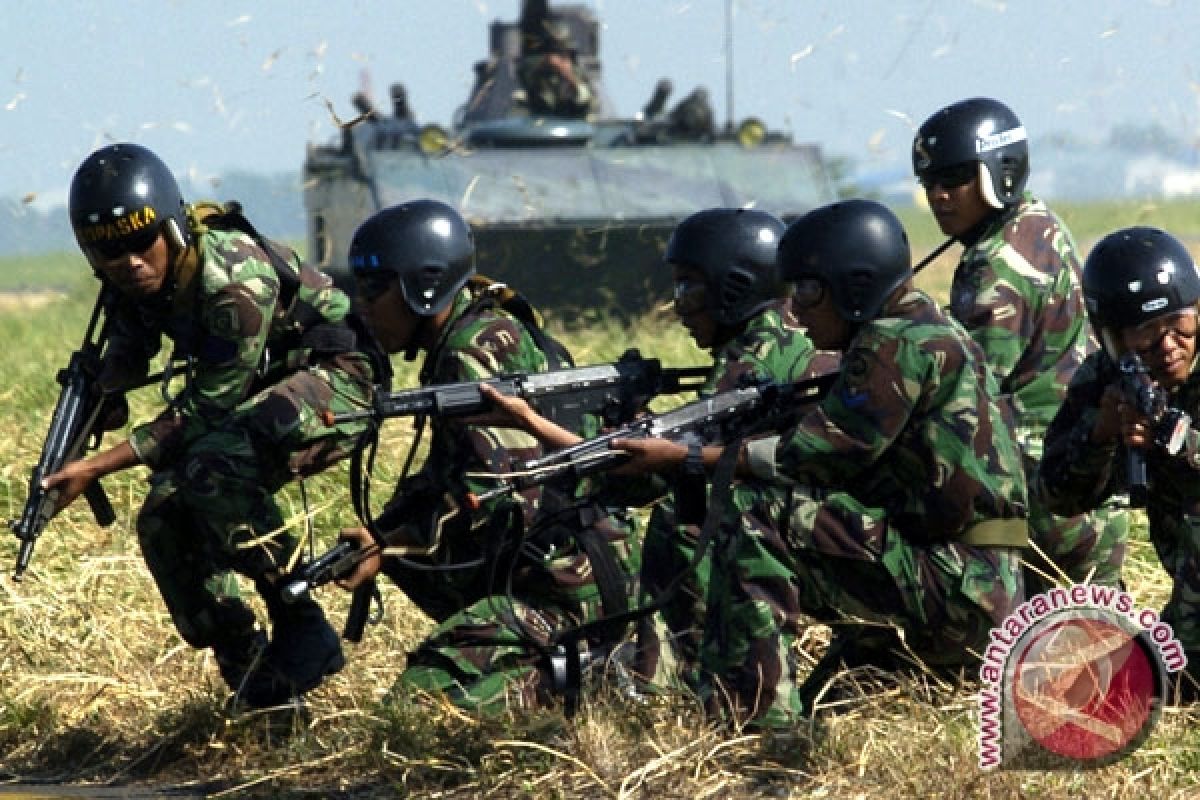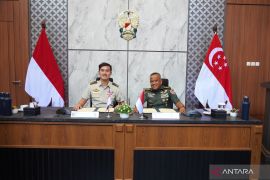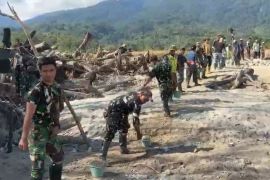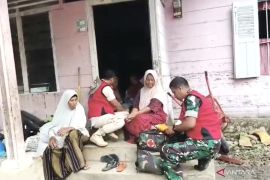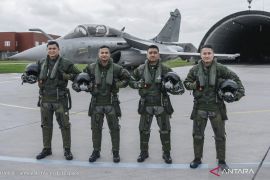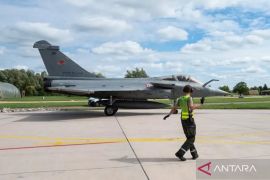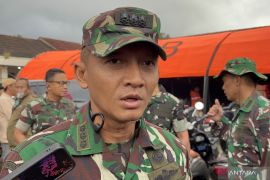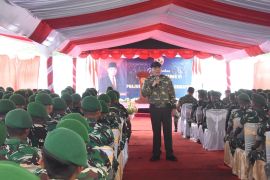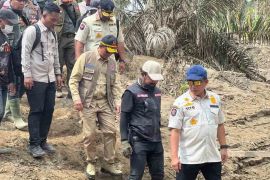Connie Rahakundini Bakrie, a military affairs analyst at the University of Indonesia , did not exactly cite the famous Latin saying but her message delivered at a recent seminar in Jakarta in essence had the same meaning.
The Latin adagium was coined by the 5th century author Publius Flavius Vegetius Renatus.
The seminar was opened with a keynote speech by Deputy Defense Minister Sjafrie Sjamsoeddin and featured speakers Tubagus Hasanuddin, deputy charmain of the House of Representatives` Commission I, PT Krakatau Steel President Director Fazwar Bujang and Bank BNI`s chief economist Ryan Kiryanto.
Bakrie spoke of the need for the country to think out of the box defense-wise because the threat scenarios for Indonesia might not be in line with the business-as-usual approach some quarters in the country were adhering to arguing that it was unlikely that the nation would one day face a situation of war.
"Just look at the current geopolitical realities encircling Indonesia. There should be no mistake in understanding those realities," said Bakrie who also referred to Australia, a neighbor south of Indonesia, that had been playing a global role as a geopolitical power.
Bakrie further observed that ASEAN alone was not enough (to keep the region in peace). "We have to build the power together with Australia, India and perhaps China. Building the so-called East Asia maritime and security community," added Bakrie, a fellow of the Tel Aviv-based strategic think tank INSS.
Bakrie also criticized the fact that Indonesia sticks to the so-called minimal essential force that had been discouraging the country from allocating bigger defense budget in recent years.
"The country`s defense needs more budget to be able to provide the required defense," she said.
"Wars might happen due to the scarcity of resources, especially related to energy, trade and religion. The question is only about when and how," Bakrie pointed out, emphasizing her strong belief that scarcity of resources was among the most possible causes of conflicts and wars in the future.
Referring to Indonesia`s thinker Tan Malaka, Bakrie opined that regional equilibrium should be achieved by strengthening the regional capabilities while the stronger countries were supporting the weaker ones in their economic and security build-up issues.
Without efforts to create a regional equilibrium, she argued, the condition would eventually result in a situation where some weak but resource-rich countries fall apart directly or indirectly.
Based on her arguments, Bakrie said she was strongly of the opinion that building the military capacity with Minimum Essential Force (MEF) concept is totally unrealistic because in the 21st century sovereignty and security of any nation has to be approached holistically.
Defense system
Interestingly, just two days after the seminar, President Susilo Bambang Yudhoyono emphasized the need for the nation`s military to adjust with the changing pattern of defense system so as to enable the Indonesian Defense Force (TNI) to be always at the ready to face threats to Indonesia`s sovereignty.
Briefing TNI brass at the campus of the Magelang-based Military Academy in Central Java on July 14, President Yudhoyono directed that the TNI doctrine and its implementation within the three services of the armed forces be kept being developed and updated in accordance with the progress of the era.
The president, who himself was a four-star general, said that the instability in the region was something that must be anticipated by the TNI, in particular when military expenditures of the countries in the region had been on the rise while their naval fleet got stronger.
"The sovereignty of the state must be defended with whatever means," stressed President Yudhoyono, who is the supreme commander of the TNI.
A member of Commission I of the House of Representatives Fayakhun Andriadi said Indonesia`s defense system was still facing problems related to the provision of arms and maintenance of the arsenals.
"The problems exist due to the government`s limited budget and lack of political will to develop our own strategic industries," he told newsmen in his office in Jakarta (July 14).
In terms of budget, he said, there was a gap between the budget demanded for the weaponry system and the realization from the government. "Sometimes the gap can reach up to 400 percent. The Ministry of Defense in 2008 and 2009 had proposed a budget of Rp100.5 trillion and Rp127.1 trillion respectively.
However, the government could only approve Rp32.8 trillions for 2008 and Rp33.6 trillion for 2009 respectively. In 2010, the proposed budget was Rp158.1 trillion but the realization was only Rp40.6 trillion," he said.
In 2011, the budget was further increased to Rp42.5 trillion yet the figure remains much lower than what is really required. In comparison, neighbor city state Singapore`s defense budget in 2008 was Rp664 trillion.
The low budget allocations themselves, however, must have been a direct translation from the basic defense concept as stipulated in the government regulation on general policy of state defense for 2010-2014. As one can easily figure it out, the key word is small but strong.
On the policy for the development of the military defense posture, the regulation prioritizes and focuses on the realization of the TNI`s MEF whereby the reference remaining with the ideal TNI long-term posture as planned.
MEF itself, as outlined by the regulation, is standard and minimum strength of the TNI which must be fulfilled wholly as the main fundamental condition with which the TNI can effectively carry out its basic duties and functions in dealing with actual threats.
The top priority of the MEF guidelines is on enhancing the mobility capability of the Air Force, the Navy and the Army in supporting the execution of TNI`s basic duties all over the national territories, the regulation says.
Next on the priority list, is the improvement of the combat units` capabilities, especially the striking force both on the central and provincial territories, and, the provision of the standby forces whose primary functions are on the handling of natural disasters and international peace missions.
The other supporting needs in terms of substantiating the MEF, it adds, will be fulfilled gradually so that the MEF can be made a basic stepping stone toward getting an ideal TNI's posture.
(T. E004/HAJM/H-YH)
Reporter: by Edi Utama
Editor: Priyambodo RH
Copyright © ANTARA 2011
